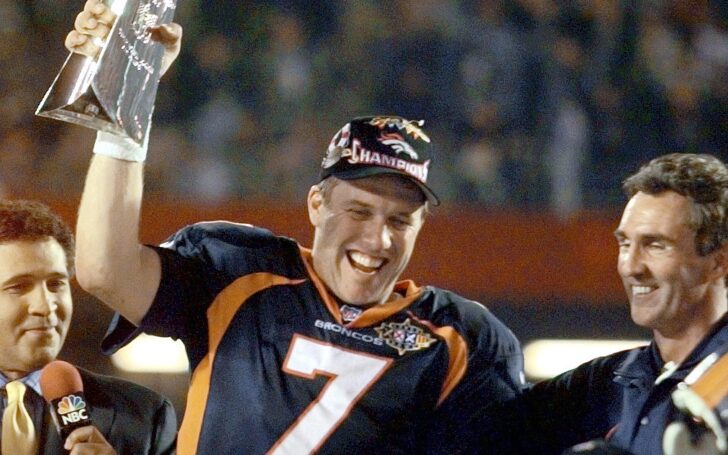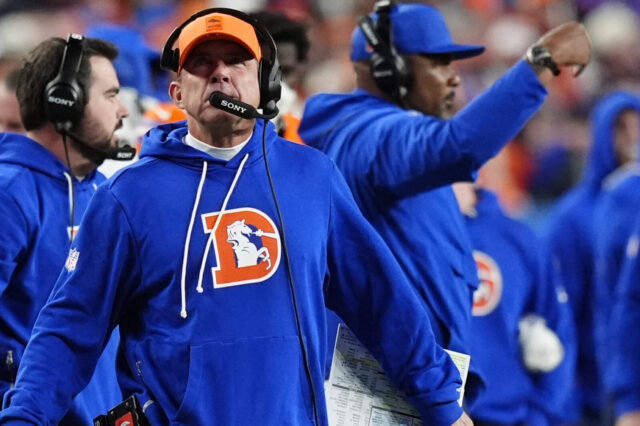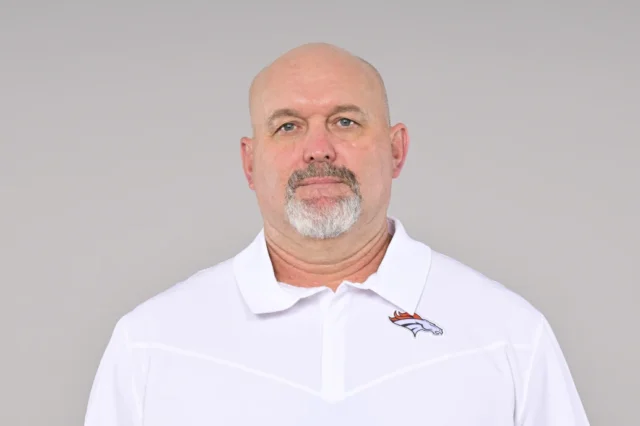In a few, short hours, Drew Lock will take the reins of the Denver Broncos for his fifth-career start. Broncos fans and faithful are hopeful Lock turns into the quarterback of the future, and their expectations are high because of legendary quarterbacks of the past.
John Elway and Peyton Manning are undoubtedly two of the greatest quarterbacks to lace up cleats in the NFL, each of them being named to the NFL’s 100 All-Time Team on Friday. Manning will always hold a special place in Broncos lore, leading Denver to a Super Bowl in his final season. But, Elway’s status as the greatest Broncos player ever lives on into 2020.
Elway’s the only career-long Broncos player to be named to the 100 All-Time Team, with “The Sheriff” joining the “Duke of Denver.” Both of them were selected along with Brett Favre, Roger Staubach, Tom Brady, Dan Marino, Otto Graham, Sammy Baugh, Joe Montana and Johnny Unitas.
If you’re a football fan, that’s a veritable “who’s who” of quarterbacks.
And, as with any list — be it a Pro Bowl or the Hall of Fame — there will always be snubs. The biggest glaring one, at least from a current player perspective, is Drew Brees. So, fans of Brees — one of the most prolific gun-slingers of all-time — decided the least-deserving QB on the Top-100 team was Elway and Brees should be in over the Duke.
No offense to Brees nor to his die-hard fans, but John Elway was better, period.
To simply shout out all of Brees’ stats and how they compare to Elway’s is to miss the point of the argument. 77,000 passing yards sounds like a made up number when you look back 20 years ago and see that Elway was the second QB ever to hit the 50,000-yard plateau.
Simply, the NFL has evolved in the new millennium, heavily helping offenses and in particular, the passing game.
Back in Elway’s day (1983-1998), players didn’t train like they do now. They worked out on their own, and some of them didn’t lift weights at all. Elway’s offensive teammates for most of his career were relative nobodies, and he notably never had a receiver taller than 5’11” until Ed McCaffrey in 1995.
Still, Elway led the Broncos to three Super Bowl appearances in the 1980s and to the playoffs five times during that decade. Those early days are the ones younger football fans — who have only seen Brees play — forget.
Look at some of that old Elway tape (below). There’s a reason why Patrick Mahomes has been compared to the Duke; both have rocket launchers for arms and each will take off in an instant for a first down.
Elway rushed for 3,407 yards and 33 touchdowns, and enjoyed a 5.0 yards per carry average or better in five seasons. He literally carried the Broncos to victories with his athleticism, even if that meant catching a pass from time to time.
He did everything in his power to win, brazenly improvising on the field like an artist on a piece of canvas.
Simply, John Elway was a winner. When he retired, his 148 regular season wins were the most all-time by a QB, and his 64.1 winning percentage is not only one of the best, but much better than Brees’ (59.3). And there’s a reason why Elway had so many 4th quarter comebacks; despite being surrounded by sub-par talent, he found ways to win games.
Elway helped push the Broncos to the playoffs 10 different times in a 16-year career and went 14-7 in those games. His five Super Bowl starts were the most all-time before Brady smashed that record. But Elway is still the only QB to rush for a touchdown in four different Super Bowls, and only the second player to do accomplish the feat (Thurman Thomas).
In his younger years, Elway played under a rather unimaginative coach in Dan Reeves, which forced the quarterback to ad-lib on the gridiron to make the most out of little in terms of playmakers and the plays being called. Even with Reeves as the head coach, though, Elway earned the NFL MVP trophy in 1987.
Finally, late in his career, the Duke was given a young, innovative offensive mind in Mike Shanahan. “The Mastermind” helped construct one of the most prolific offenses of that time, as the 1997 Broncos led the NFL with an offense that averaged 29.5 points and 367 yards per game. Again, those numbers pale in comparison to what teams are putting up these days, because the game has changed.
Back in Elway’s day, receivers had to fight to get open because the illegal contact penalty wasn’t invented yet. Back in those days, football was more balanced and more physical, too. Terrell Davis’ running and the Broncos innovative zone blocking offensive line were major reasons why the Broncos won Super Bowls XXXII and XXXIII.
And that balanced offensive attack, which took all the pressure off Elway’s shoulders, allowed the quarterback to be much more efficient in the passing game.
Instead of arguing that Elway couldn’t win the big one without T.D., celebrate the Duke’s perseverance through all the narratives that said he couldn’t win the big game.
John Elway was already Colorado royalty for years but bringing the Broncos their first Vince Lombardi Trophy elevated him to another level. To have the guts to come back for a 16th season and enjoy an even more dominant run (Denver started 13-0 that year) and a back-to-back Super Bowl win is legendary.
The cherry on top was that Super Bowl XXXIII MVP for Elway, adding to his league MVP and so many other accolades.
Brees is a more accurate passer, sure. His statistics are otherworldly. But he’s never been the best player in the NFL, while Elway was.



